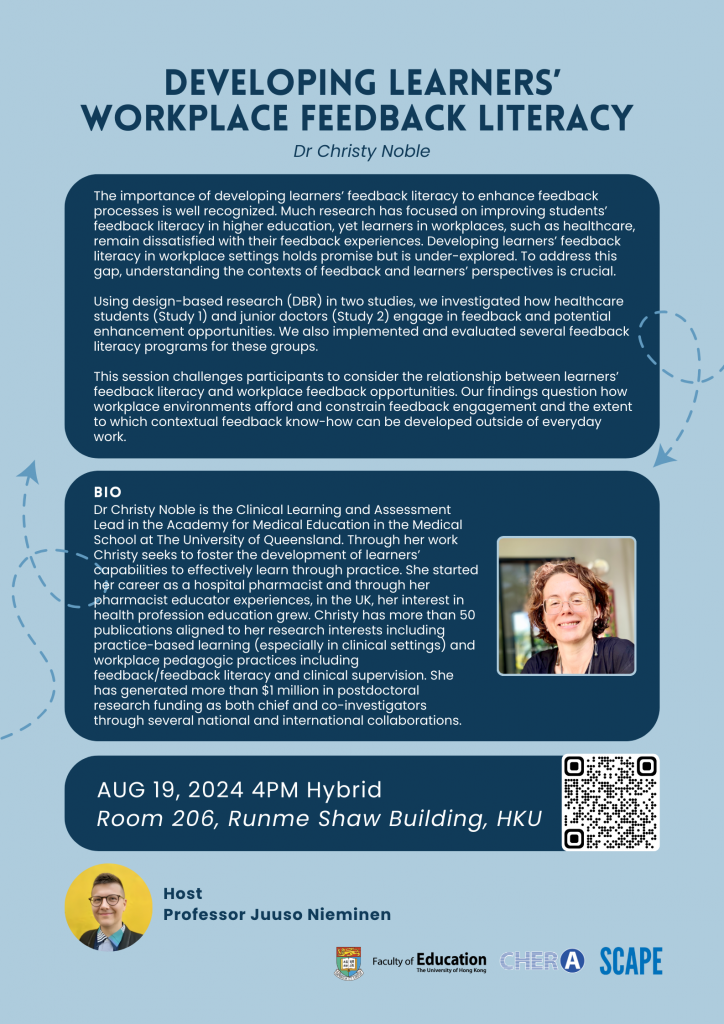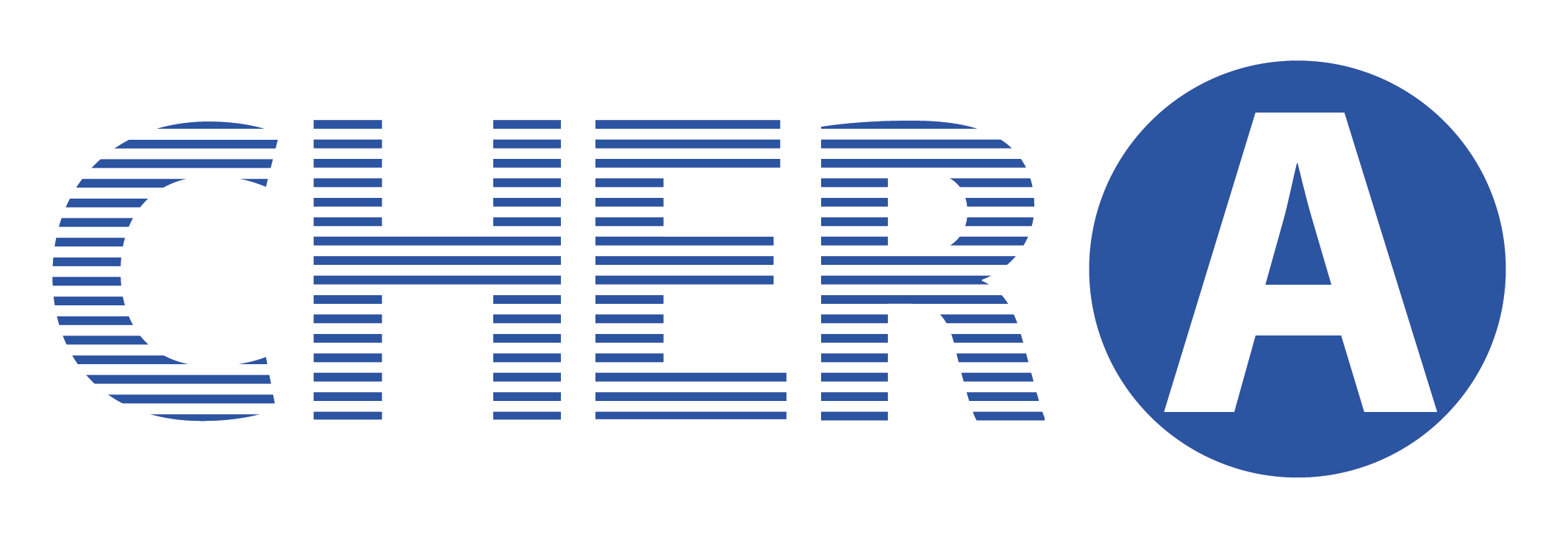
Date: 19 August, 2024
Time: Start from 4:00 p.m. (HKT)
Mode: Hybrid–Room 206 Rume Shaw Building/by ZOOM
Speaker: Dr. Christy Noble (The University of Queensland)
Chair: Professor NIEMINEN, Juuso Henrik (The University of Hong Kong)
Registration link: https://hku.au1.qualtrics.com/jfe/form/SV_eguFgJ4YRv1iB3U
Abstract
The importance of developing learners’ feedback literacy to enhance feedback processes is well recognized. Much research has focused on improving students’ feedback literacy in higher education, yet learners in workplaces, such as healthcare, remain dissatisfied with their feedback experiences. Developing learners’ feedback literacy in workplace settings holds promise but is under-explored. To address this gap, understanding the contexts of feedback and learners’ perspectives is crucial.
Using design-based research (DBR) in two studies, we investigated how healthcare students (Study 1) and junior doctors (Study 2) engage in feedback and potential enhancement opportunities. We also implemented and evaluated several feedback literacy programs for these groups.
This session challenges participants to consider the relationship between learners’ feedback literacy and workplace feedback opportunities. Our findings question how workplace environments afford and constrain feedback engagement and the extent to which contextual feedback know-how can be developed outside of everyday work.
About the speaker:
Dr Christy Noble is the Clinical Learning and Assessment Lead in the Academy for Medical Education in the Medical School at The University of Queensland. Through her work Christy seeks to foster the development of learners’ capabilities to effectively learn through practice. She started her career as a hospital pharmacist and through her pharmacist educator experiences, in the UK, her interest in health profession education grew. Christy has more than 50 publications aligned to her research interests including practice-based learning (especially in clinical settings) and workplace pedagogic practices including feedback/feedback literacy and clinical supervision. She has generated more than $1 million in postdoctoral research funding as both chief and co-investigators through several national and international collaborations.
